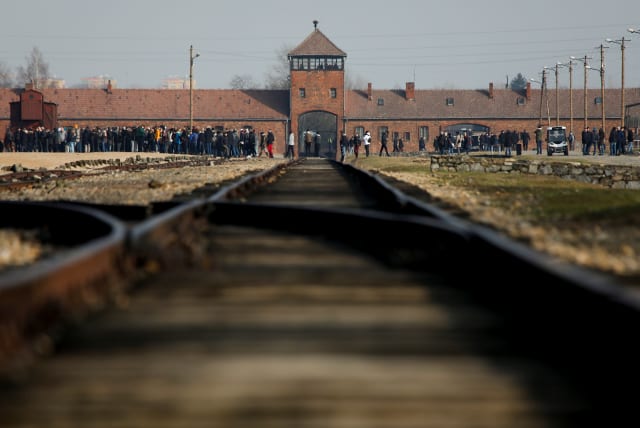Never again: Israel must depend solely on itself - comment

Today, as Netanyahu’s government navigates its security landscape amid international scrutiny and conditional support, the lesson is clear.
As dawn broke over the barracks of Auschwitz in late 1944, the cold air carried whispers of desperate hope among the prisoners. Rumors, faint yet fervent, suggested that the Allies might bomb the camp, severing the railways that delivered thousands to their deaths and disrupting the relentless machinery of genocide. This hope was not without foundation; distant leaders debated the moral imperative to act against the atrocities they had come to learn about in chilling detail.
Yet, despite the clear evidence and urgent pleas, the decision was ultimately one of restraint – so no bombs were dropped on Auschwitz. The tracks remained intact, and the horrific, systematic extermination continued unabated.
David S. Wyman, in his seminal 1984 work The Abandonment of the Jews, captures this poignant inaction, stating, “The United States and its allies, however, were willing to attempt almost nothing to save [the Jews].” This stark indictment of indifference is not merely historical commentary but a painful reminder of the limits of reliance on others during times of existential threat.
Decades later, echoing the chilling lessons of the past, Prime Minister Benjamin Netanyahu articulated on Sunday, the eve of Holocaust Remembrance Day, a sobering truth born from historical abandonment: “If we do not defend ourselves, nobody will defend us.” His words resonate against the backdrop of recent international developments, where the specter of withheld support looms large.
Ken Burns’ documentary The US and the Holocaust, discussed by Olivia B. Waxman in Time in 2022, revisits the moral and strategic calculations that once deterred the US from bombing Auschwitz. Deborah Lipstadt, the current Special Envoy to Monitor and Combat Antisemitism and featured in the documentary, suggests that such an action could have powerfully communicated to the Nazis. “We know what you are doing. We cannot abide what you are doing. This is our response to what you are doing.”
Yet historical fears that bombing might also harm the prisoners contributed to the decision against it, highlighting the tragic complexity of wartime decisions.
Historical hesitancy in our times
This historical hesitancy is mirrored in contemporary times, where strategic interests often overshadow moral imperatives. The restrictive quota system for Jewish refugees during the Holocaust, driven by widespread antisemitism and xenophobia, is a stark reminder of how societal biases can influence national policies.
The late American journalist Freda Kirchwey wrote a 1943 critique in The Nation poignantly encapsulated this, stating, “If we had behaved like humane and generous people instead of complacent, cowardly ones, the two million Jews lying today in the earth of Poland and Hitler’s other crowded graveyards would be alive and safe.” Kirchwey was the former managing editor, literary editor, editor and, ultimately, publisher of The Nation.
Today, as Netanyahu’s government navigates its security landscape amid international scrutiny and conditional support, the lesson is clear: Israel must prioritize its survival strategies independent of the unreliable guarantees of global allies.
The harrowing lessons of the Holocaust and the contemporary geopolitical dynamics underscore a stark reality: the Jewish state and the Jews cannot rely solely on anyone or any state to save them in times of need or danger. This realization, drawn from the profound scholarship of Wyman and the reflective narratives of Burns’ documentary, serves as a compelling directive for Israel to maintain its resolve and readiness – a commitment to self-reliance forged in the shadows of history, ensuring the nation’s resilience in an uncertain global landscape.
Jerusalem Post Store
`; document.getElementById("linkPremium").innerHTML = cont; var divWithLink = document.getElementById("premium-link"); if (divWithLink !== null && divWithLink !== 'undefined') { divWithLink.style.border = "solid 1px #cb0f3e"; divWithLink.style.textAlign = "center"; divWithLink.style.marginBottom = "15px"; divWithLink.style.marginTop = "15px"; divWithLink.style.width = "100%"; divWithLink.style.backgroundColor = "#122952"; divWithLink.style.color = "#ffffff"; divWithLink.style.lineHeight = "1.5"; } } (function (v, i) { });

